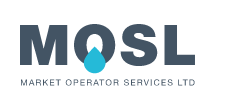MOSL is calling on Ofwat to ensure its determinations on the water companies’ AMP8 business plans at PR24 include an appropriate level of incentives/penalties to help achieve Defra’s target of reducing water demand by 9% by 2038 in the non household retail market.

MOSL and the Strategic Panel have released a joint open letter sent to water company CEOs on 14 December following the publication of wholesalers updated Water Resources Management Plans (WRMPs).
The market operator is warning that deferring the bulk of activities to deliver the target beyond 2030, as proposed by some wholesalers, will see business growth and the associated jobs it would bring “throttled back”.
The joint letter from Sarah McMath, Chief Executive at MOSL and Rick Hill, Strategic Panel Interim Chair highlights the importance of all wholesalers prioritising NHH water efficiency efforts, collaboration with retailers, and developing plans to make strong progress towards Defra’s 9% target by the end of AMP8 to avoid action being backloaded when it may be too late to avoid water shortages.
The market operator said it recognises the plans are being developed in an increasingly turbulent time, with new or expanded business connections already being turned down in more than one wholesaler,region due to water shortages.
“We encourage those companies to bring forward plans given water security is a ‘here-and now' problem, evidenced by some wholesalers now having to refuse new NHH demand requests, constraining, or even turning away business in their regions”, the letter says.
According to MOSL, while the plans now make clear reference to Defra’s target to reduce water demand in the NHH market by 9% by 2038 and most set out plans to achieve the target, some plans do not and lack the measures needed to do so. The least ambitious plans will not roll out smart meters to all NHH customers until 2040. The letter says:
“We expect companies in that position to develop plans to meet the legally binding target in time for the start of AMP8.”
MOSL believes there is more work to be done to move towards a country-wide approach to smart metering and demand reduction. The letter highlights areas where it believes more action is needed and a focus on the needs of the NHH market and its customers, saying it is crucial that:
- Government acts on the National Infrastructure Commission’s recent recommendation to enable water companies to ‘implement compulsory metering beyond water stressed areas by 2025 ‘and a systematic roll out of smart meters to household and NHH customers’.
- Government provides clarity on the level of ML/day reductions that need to be made by NHH customers and whether this is a uniform reduction across different wholesaler regions.
- All wholesalers develop plans that include the necessary measures to make strong progress towards Defra’s 9% target by the end of AMP 8 to avoid this being backloaded when it may be too late to avoid water shortages. We do not believe that undertaking trials around NHH water efficiency measures is aligned with the imminent water security challenges we face as a country.
- Wholesalers ensure the infrastructure is up and running to transmit and hold smart meter data and make it available to all who can derive value from it (directly or indirectly) – wholesalers, retailers, customers, third parties.
Putting meters in the ground
According to MOSL, putting meters in the ground is just the first step to gaining access to the accurate, timely meter reads and detailed consumption data that will be critical in meeting future demand challenges.
In April 2023 the Strategic Panel published its Interim National Metering Strategy for the NHH market, urging water companies to accelerate the rollout of smart meters to non-household customers.
The strategy recommends companies roll out smart metering to all NHH customers in AMP8, specifically that companies with large-scale plans to roll out smart meters to domestic customers should include NHH customers at the same time.
The strategy says that companies unable to do so should prioritise ensuring all medium (25-50mm) and large (50mm or more) meters are smart in AMP8. In doing so, targeting just 13% of the meters in the market will mean that nearly three quarters (72 per cent) of water consumption is smart metered.
The Strategic Panel plans to publish a final National Metering Strategy for the NHH market in March 2024.
